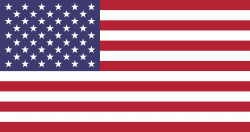Savannah (Savannah)
 |
Each year, Savannah attracts millions of visitors to its cobblestone streets, parks, and notable historic buildings. These buildings include the birthplace of Juliette Gordon Low (founder of the Girl Scouts of the USA), the Georgia Historical Society (the oldest continually operating historical society in the South), the Telfair Academy of Arts and Sciences (one of the South's first public museums), the First African Baptist Church (one of the oldest African-American Baptist congregations in the United States), Temple Mickve Israel (the third-oldest synagogue in the U.S.), and the Central of Georgia Railway roundhouse complex (the oldest standing antebellum rail facility in the U.S. and now a museum and visitor center).
Savannah's downtown area, which includes the Savannah Historic District, its 22 parklike squares, and the Savannah Victorian Historic District, is one of the largest National Historic Landmark Districts in the United States (designated by the federal government in 1966). Downtown Savannah largely retains the founder James Oglethorpe's original town plan, a design now known as the Oglethorpe Plan. During the 1996 Summer Olympics hosted by Atlanta, Savannah held sailing competitions in the nearby Wassaw Sound.
On February 12, 1733, General James Oglethorpe and settlers from the ship Anne landed at Yamacraw Bluff and were greeted by Tomochichi, the Yamacraws, and Indian traders John and Mary Musgrove. Mary Musgrove often served as an interpreter. The city of Savannah was founded on that date, along with the colony of Georgia. In 1751, Savannah and the rest of Georgia became a Royal Colony and Savannah was made the colonial capital of Georgia.
By the outbreak of the American Revolutionary War, Savannah had become the southernmost commercial port in the Thirteen Colonies. British troops took the city in 1778, and the following year a combined force of American and French soldiers, including Haitians, failed to rout the British at the Siege of Savannah. The British did not leave the city until July 1782. In December 1804 the state legislature declared Milledgeville the new capital of Georgia.
Savannah, a prosperous seaport throughout the nineteenth century, was the Confederacy's sixth most populous city and the prime objective of General William T. Sherman's March to the Sea. Early on December 21, 1864, local authorities negotiated a peaceful surrender to save Savannah from destruction, and Union troops marched into the city at dawn.
Savannah was named for the Savannah River, which probably derives from variant names for the Shawnee, a Native American people who migrated to the river in the 1680s. The Shawnee destroyed another Native people, the Westo, and occupied their lands at the head of the Savannah River's navigation on the fall line, near present-day Augusta. These Shawnee, whose Native name was Ša·wano·ki (literally, "southerners"), were known by several local variants, including Shawano, Savano, Savana and Savannah. Another theory is that the name Savannah refers to the extensive marshlands surrounding the river for miles inland, and is derived from the English term "savanna," a kind of tropical grassland, which was borrowed by the English from Spanish sabana and used in the Southern Colonies. (The Spanish word comes from the Taino word zabana.) Still other theories suggest that the name Savannah originates from Algonquian terms meaning not only "southerners" but perhaps "salt."
Map - Savannah (Savannah)
Map
Country - United_States
 |
 |
| Flag of the United States | |
Indigenous peoples have inhabited the Americas for thousands of years. Beginning in 1607, British colonization led to the establishment of the Thirteen Colonies in what is now the Eastern United States. They quarreled with the British Crown over taxation and political representation, leading to the American Revolution and proceeding Revolutionary War. The United States declared independence on July 4, 1776, becoming the first nation-state founded on Enlightenment principles of unalienable natural rights, consent of the governed, and liberal democracy. The country began expanding across North America, spanning the continent by 1848. Sectional division surrounding slavery in the Southern United States led to the secession of the Confederate States of America, which fought the remaining states of the Union during the American Civil War (1861–1865). With the Union's victory and preservation, slavery was abolished nationally by the Thirteenth Amendment.
Currency / Language
| ISO | Currency | Symbol | Significant figures |
|---|---|---|---|
| USD | United States dollar | $ | 2 |
| ISO | Language |
|---|---|
| EN | English language |
| FR | French language |
| ES | Spanish language |















